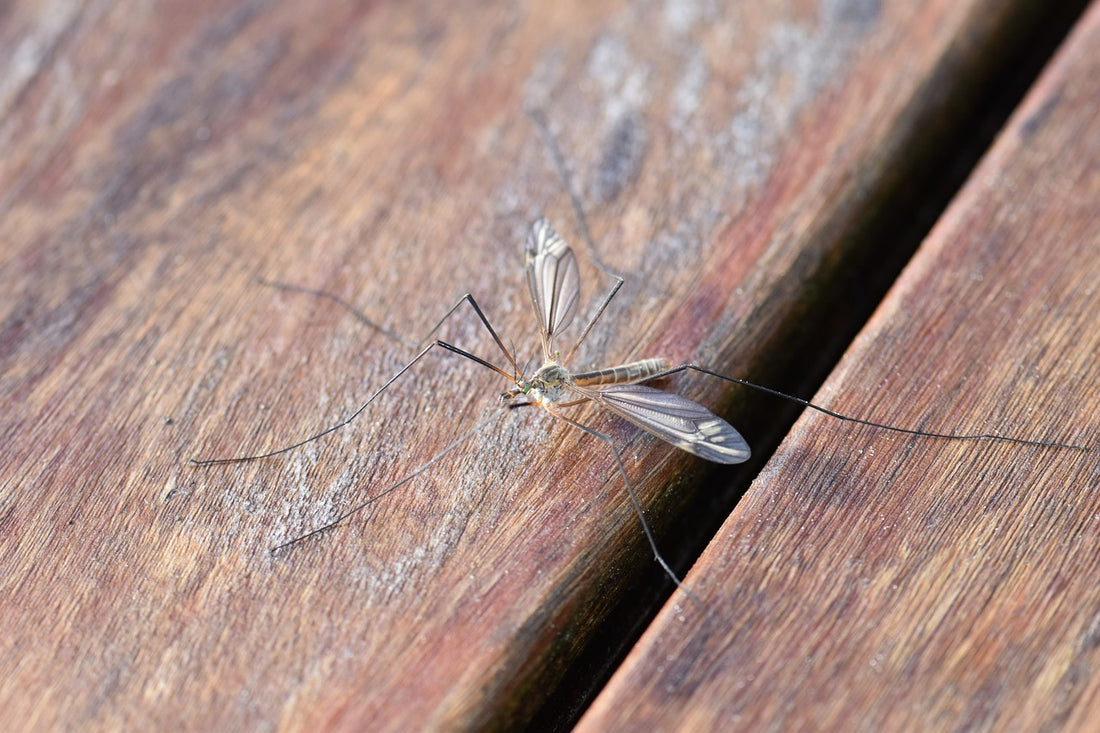
Battling Mosquitoes During Outdoor Adventures
Share
Summer invites us to enjoy the great outdoors, from camping under the stars to fishing by serene lakes, and hiking through lush forests. However, it also brings out mosquitoes in full force, turning these enjoyable activities into a battle against bites. Mosquitoes are not only a nuisance but can also carry diseases. Therefore, it's crucial to arm yourself with effective strategies to fight these persistent pests. Here’s an in-depth guide to help you minimize mosquito bites and maximize your outdoor enjoyment.
1. Use Effective Insect Repellent
Chemical Repellents:
- DEET: This is one of the most effective and widely used insect repellents. Products with 20-30% DEET offer long-lasting protection. Apply it to exposed skin and clothing, and reapply as needed, especially after swimming or heavy sweating.
- Picaridin: An alternative to DEET, picaridin is equally effective and less likely to irritate the skin. It also doesn’t damage synthetic materials.
- Oil of Lemon Eucalyptus: This natural alternative can be as effective as low concentrations of DEET. It’s derived from the leaves of the lemon eucalyptus tree and provides protection for up to 6 hours.
Natural Repellents:
- Essential Oils: Citronella, eucalyptus, lavender, peppermint, and tea tree oils can repel mosquitoes. While these natural options might need more frequent application, they are a preferred choice for those avoiding chemicals. Use them in sprays, lotions, or diffusers.
2. Wear Protective Clothing
- Long-Sleeved Shirts and Pants: Wearing long-sleeved shirts, long pants, socks, and shoes can significantly reduce exposed skin. Opt for tightly woven fabrics that mosquitoes can’t easily penetrate.
- Light-Colored Clothing: Mosquitoes are more attracted to dark colors. Choose light-colored clothing to make yourself less appealing to these insects.
- Permethrin-Treated Clothing: Treat your clothing, shoes, and camping gear with permethrin, a synthetic insect repellent that binds to fabric fibers. Permethrin-treated clothing remains effective through several washes and can provide an added layer of protection.
3. Choose Your Campsite Wisely
- Avoid Standing Water: Mosquitoes breed in standing water. When selecting a campsite, look for areas away from lakes, ponds, marshes, and even small puddles. Regularly inspect your campsite for any containers or depressions that might collect water.
- High and Dry Locations: Higher ground with good air circulation can help reduce mosquito presence. Breezy areas are less attractive to mosquitoes, as they are weak fliers.
4. Utilize Mosquito Nets and Screens
- Sleeping Areas: Use mosquito nets over sleeping areas, especially in open-air tents or hammocks. Make sure the netting has no holes and is tucked securely under your mattress or sleeping bag.
- Screened Areas: Set up a screened-in area for cooking, eating, and relaxing. Portable screen rooms can offer a mosquito-free zone where you can comfortably spend time without the constant annoyance of bites.
5. Create Air Movement
Mosquitoes are weak fliers and can be deterred by air movement. Use portable fans in your seating and cooking areas to create a breeze that helps keep mosquitoes away.
6. Burn Mosquito-Repelling Products
Mosquito coils and citronella candles can be effective in small, localized areas. Place them around your campsite, particularly in seating areas. Ensure that they are used safely, away from flammable materials.
Thermacell devices emit a mosquito-repellent vapor that creates a protective zone. They are portable, easy to use, and effective in a defined area.
7. Avoid Peak Mosquito Activity Times
Mosquitoes are most active during dawn and dusk. Plan your activities to avoid being outdoors at these times if possible. If you must be outside, take extra precautions such as applying repellent and wearing protective clothing.

8. Keep Your Campsite Clean and Dry
- Eliminate Standing Water: Regularly check your campsite for standing water. This includes water collected in containers, tarps, and natural depressions. Dump any standing water to prevent mosquitoes from breeding.
- Trash and Food Scraps: Dispose of garbage properly and store food securely to avoid attracting mosquitoes and other pests. Use sealed containers for food storage and make sure trash bags are tightly closed.
9. Use Mosquito Traps
Mosquito traps that emit carbon dioxide or use other attractants can capture mosquitoes effectively. Set these traps around the perimeter of your campsite to reduce the mosquito population. While they can be an investment, they offer significant relief in heavily infested areas.
10. Consider Head Nets and Bug Jackets
For areas with high mosquito activity, head nets and bug jackets can provide an additional layer of protection. These items are lightweight and designed to keep mosquitoes away from your face and upper body.
11. Plant Mosquito-Repellent Plants
Planting mosquito-repellent plants like citronella, lavender, marigold, and basil around your campsite can help reduce mosquito presence. These plants release scents that are unpleasant to mosquitoes, offering a natural way to deter them.
Enjoying the great outdoors in summer doesn’t have to be marred by mosquitoes. By using a combination of chemical and natural repellents, wearing protective clothing, choosing your campsite wisely, and employing various deterrents, you can significantly reduce mosquito bites. These comprehensive strategies will help ensure that your camping, fishing, hiking, and other outdoor adventures are more enjoyable and mosquito-free.
Remember, preparation is key. Equip yourself with the right tools and knowledge, and you can turn your outdoor experiences into pleasant memories rather than itchy encounters. Happy adventuring!
